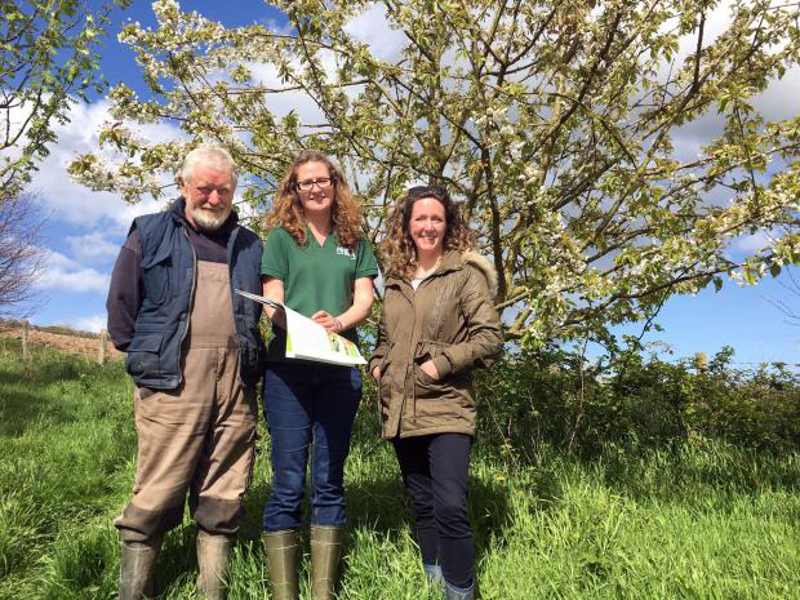Farmers Asked To Give Our Bees A Hand
The agricultural industry in Northern Ireland is being urged to help stop the decline of bees and other pollinating insects.
Pollinators – such as honey bees, our familiar bumblebees and hoverflies – have suffered significant declines in recent years. But they are vital to the survival of many flowering food crops and our native plants.
DAERA Permanent Secretary Denis McMahon today launched new ‘Farmland actions to help pollinators guidelines’ at the Balmoral Show to encourage pollinator-friendly farming.
Melina Quinn from the Northern Ireland Environment Agency explained: “We are all stakeholders when it comes to the natural world, and have responsibility for its wellbeing.
“Farmers are the custodians of our environment. Their livelihood depends on the health of the land, biodiversity and air around them. Our agricultural industry is being asked to work in tandem with nature and, under their stewardship, significant strides can be made in the protection and enhancement of our natural habitats.
“Pollinators such as wild bees and butterflies are a key part of an ecosystem, and an indicator of its overall wellbeing. Across the island of Ireland, one third of our bee species are threatened with extinction. This is part of a bigger global problem, and a number of factors are involved. But we must act locally now.”
Organisations in the North and the South of Ireland are working together as part of the All-Ireland Pollinator Plan to address the decline.
Melina added: “Everyone, from government departments to local councils, businesses, schools, gardens and transport authorities have a role to play in the Pollinator Plan. We will be taking this message to the Balmoral Show in 2018. This is about informing those in the agricultural industry, as well as encouraging them to be aware of what actions can be taken to benefit pollinating insects.”
Our pollinators need to be able to feed on a range of different flowers from early spring right through to late autumn. In order to achieve this farmers can:
- Maintain native flowering hedgerows;
- Allow wildflowers to grow around the farm;
- Provide nesting places for wild bees;
- Minimise artificial fertiliser use and consider sowing clovers; and
- Reduce pesticide inputs
The importance of wild, non-managed bees as pollinators of not only crops, but also wild plants is becoming more and more apparent. The economic contribution of pollination by wild bees has been assessed as £1,800 per hectare.
“As is often the case in environmental matters, farmers have a vital role to play. At Balmoral, we’ll be able to explain how important that role is,” Melina said. “We are urging them to take small, cost-free steps which will have a significant impact on our pollinator populations. We will be providing show-goers with copies of our evidence-based Farmland guidelines.”
Facts:
- We have 98 wild Bee species on the island of Ireland. 30% are threatened with extinction
- Declines in wildflowers are subjecting our pollinators to starvation.
- Our tendency to ‘tidy up’ the landscape rather than allowing wildflowers to grow along roadsides, field margins, and in parks and gardens is playing a big part in reducing resources for our pollinators.
- Pollinators also contribute directly and indirectly to human well-being in other ways. There are known mental health benefits from contact with green spaces which increase with the quality of biodiversity.




